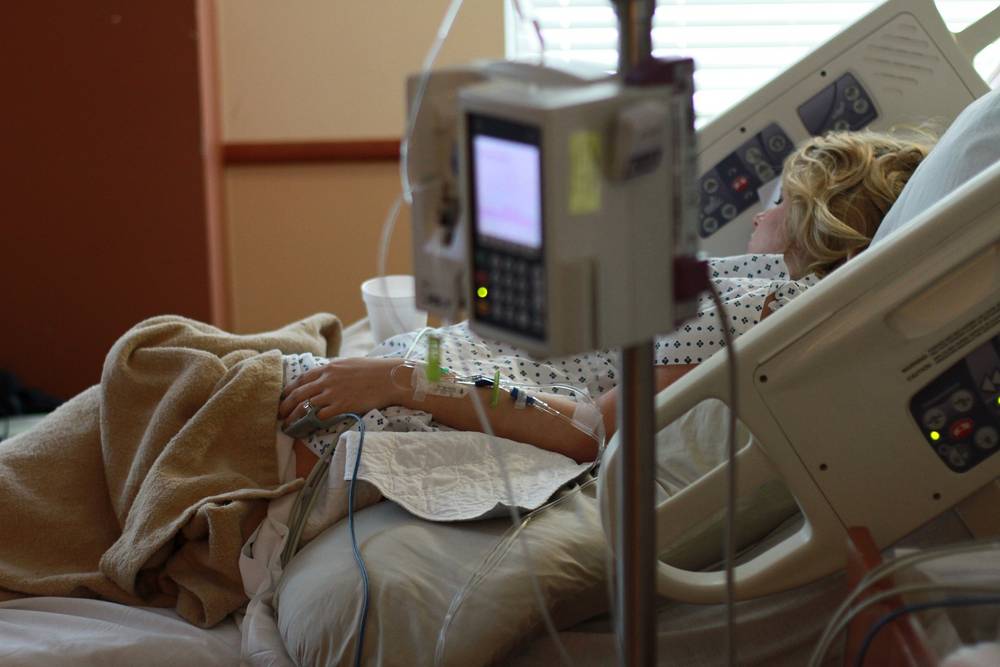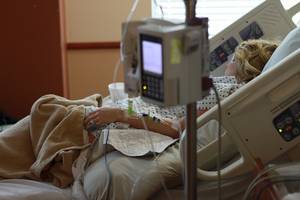The Ombudsman of the Republic of Slovenia (hereinafter: Ombudsman) received for consideration initiatives relating to the presence of birth partners at childbirth and the ban on planned home births during the COVID-19 epidemic. The Government of the Republic of Slovenia adopted the Ordinance on temporary measures in health care to contain and control the COVID-19 epidemic (Official Gazette of the Republic of Slovenia [Uradni list RS], No 40/2020; hereinafter: Ordinance) by which it suspended the planned home births. The initiative put forward the view that the ban on childbirths at home violated the human rights of women and midwives licensed to provide home birth services. There have been cases where pregnant women in distress due to the ban on having a birth partner of their choice present during delivery in the maternity hospital and the simultaneous ban on planned home births attended by licensed midwives allegedly decided to give birth at home with the help of non-licensed persons whose professional competence is therefore questionable.
The right of freedom of choice regarding childbirth is the right of every woman derived from the right to respect for private and family life pursuant to Article 8 of the European Convention on Human Rights. Namely, it depends on the country in question to ensure safety and comfort during childbirth. However, home birth is not an automatic right of the mother and, at the same time, the duty of the state to enable her to opt for such birth method, but it can be restricted under certain conditions, which must be regulated by a clear and predictable legal framework. In Ternovszky v. Hungary, the European Court of Human Rights (hereinafter: ECHR) considered the right to home birth and held that the right to home birth was in the domain of each country and, if the country accepts home birth, this has to be clearly regulated by law. In Dubská and Krejzová v. the Czech Republic, the Czech legislation, similarly to the Hungarian, prohibited health professionals from providing assistance at home, but it laid down that healthcare services could only be provided in healthcare institutions and in accordance with the law. Therefore, in this case the ECHR held that there had been no violation of human rights. It held that Article 8 of the European Convention on Human Rights cannot be interpreted in the sense of an absolute right to home birth.
During a health crisis, human rights can be restricted and under certain conditions also suspended (whereby certain rights, such as the right to life or freedom from torture must never be suspended). Article 12 of the International Covenant on Economic, Social and Cultural Rights (hereinafter: Covenant) stipulates that States Parties to the Covenant recognise the right of everyone to the enjoyment of the highest attainable standard of physical and mental health. The steps to be taken by the States Parties to the Covenant to achieve the full realisation of this right should include, inter alia, also those necessary for the prevention, treatment and control of epidemic, endemic, occupational and other diseases (Article 12 (2c)). Amid the COVID-19 pandemic, the UN Committee on Economic, Social and Cultural Rights that monitors the implementation of the Covenant stated, inter alia, that in order to ensure that Covenant rights and obligations are protected and fulfilled during this crisis, States Parties should take a range of urgent measures, whereby responses to the pandemic should be based on the best available scientific evidence to protect public health. It is essential that the measures adopted to combat the public health crisis are reasonable and proportionate. Emergency measures and powers adopted by States Parties to address the pandemic should not be abused, and should be lifted as soon as they are no longer necessary for protecting public health.
The Ombudsman is not empowered to conduct an epidemiological assessment of whether, in a specific case, the threat of COVID-19 infection was such that it was necessary to adopt the measure suspending planned home births and prohibiting the presence of a birth partner during childbirth. We understand the endeavours of pregnant women and their desire regarding the presence of a birth partner at childbirth and the planned home births. It is certainly one of the most important benefits that the future mother and child enjoy. Given the global spread of COVID-19, we have noted that different countries have responded to the epidemic in different ways. They have been more or less successful. The Ombudsman cannot assess whether the measures taken in Slovenia have been successful, to what extent they have been successful, whether they should be different or similar to those taken in Austria, Great Britain or the Netherlands. Such assessment can only be made by experts or proposers of the measure. There is no doubt that the measures are aimed at reducing the risk of infection and we believe that this is also their main purpose. In view of the current pandemic spread, no measure provides a full guarantee against the spread of the infection since, despite measures, the virus has also hit those who have extensive expertise in infection prevention (healthcare workers) and who are on the frontline of this pandemic. The measures are therefore also intended to protect healthcare professionals since if infected they must go into self-isolation, which further cripples the healthcare system.
According to arguments stated in the initiatives relating to home birth, the risk of infection at home is lower than that in a maternity hospital because the number of those involved is low and they do not come into contact with others. Unfortunately, this only applies on the assumption that the childbirth goes smoothly. If unexpected complications occur and transport to the maternity hospital is necessary, the number of people who may be infected increases significantly more than if childbirth had taken place in the maternity hospital from the very beginning. Medical professionals point out that any provision of emergency medical assistance during the epidemic is very risky and imposes an additional burden on the healthcare system. Therefore, decision-makers have a difficult task of always weighing between constitutional values and individual rights and freedoms, and choose the lesser evil. Of course, we also understand the concerns of pregnant women over severe restrictions that undoubtedly have negative effects on the quality of life. However, we believe that the uncontrolled spread of infection could lead to the restriction of human rights with even more serious consequences, not least for people’s lives.
Regardless of this and on the grounds that the right to health covers not only aspects of physical but also mental health, the Ombudsman considers that during childbirth in a maternity hospital it is the doctor who in specific cases should assess whether, in the current situation and in view of the psychophysical condition of the woman giving birth, it is necessary for the partner to be present during childbirth. The psychophysical condition of expectant mothers (their coping with upcoming childbirth and measures that adversely affect the quality of life) varies, which should be taken into account to some extent when planning childbirth. In this regard, as we have already stated, if childbirth takes place at a maternity hospital, the doctor should assess in specific cases the risk of the possible transmission of infection and the positive effects of the birth partner's presence during childbirth on the mother and child. We believe that this also reduces the risk of pregnant women in distress opting for a home birth with the help of non-licensed persons simply because they are scared to give birth in a maternity hospital without the presence of their birth partner."
The presence of birth partners at childbirth and the suspension of planned home births during the COVID-19 epidemic

Photo gallery
(1)
